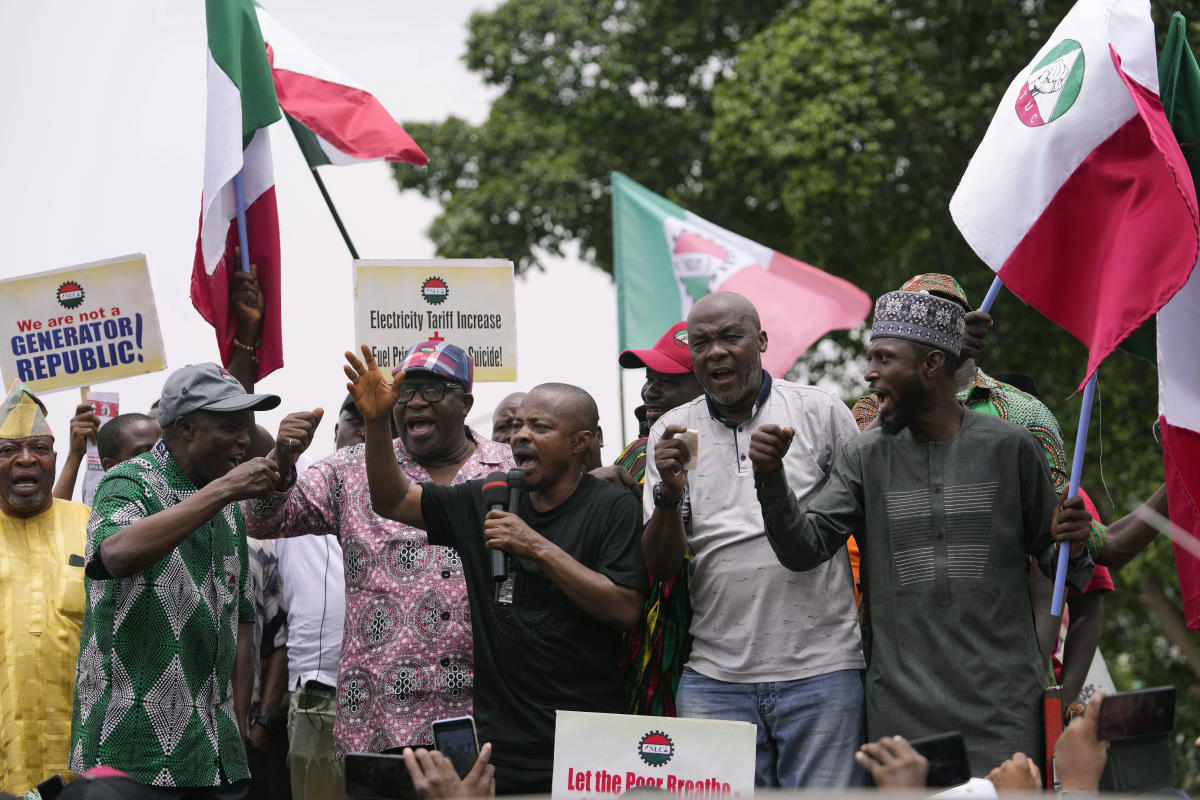GOMBE, Nigeria (AP) — Africa’s most populated nation ground to a stop on Monday, with electrical power cut and significant airports closed, as Nigeria’s biggest labor unions started striking to require a raise amidst the worst expense of living crisis in years.
President Bola Tinubu’s financial reforms — consisting of ending fuel aids — have actually led to rising inflation that is at a 28-year record high.
In this most current strike, employees closed down the nationwide electrical power grid and repelled operators at an essential transmission station, the Transmission Business of Nigeria stated, including that other employees sent out to bring back power were obstructed.
Somewhere else, federal government employees either stopped working to appear or closed down entryways to workplaces, consisting of at airports in the capital of Abuja and the financial center of Lagos. All air travel employees must keep away “up until more notification,” their association stated.
“We require a living wage,” the Nigerian Labour Congress stated on X, explaining what they presently make as “hunger wage.” It and the Trade Union Congress represent numerous countless federal government employees throughout crucial sectors.
The unions desire the existing minimum regular monthly wage of 30,000 naira ($20) to be increased to almost 500,000 naira ($336). The federal government provides 60,000 naira ($40).
The unions’ need would increase the federal government wage expense by 9.5 trillion ($6.3 billion), which can “destabilizing the economy,” details minister Mohammed Idris has actually stated.
After Nigeria’s president ended the decadeslong however pricey fuel aids on his very first day in workplace in Might in 2015, the rate of gas more than doubled in among Africa’s most significant oil manufacturers. Rates for public transportation and products skyrocketed.
Tinubu’s federal government likewise decreased the value of the naira currency to motivate foreign financial investment, which even more increased costs of standard products in the import-dependent nation of more than 210 million individuals.
